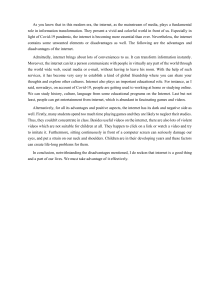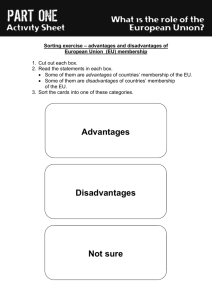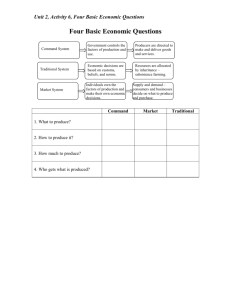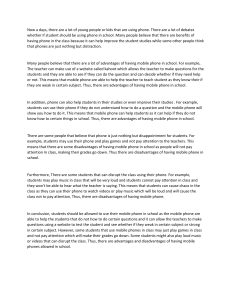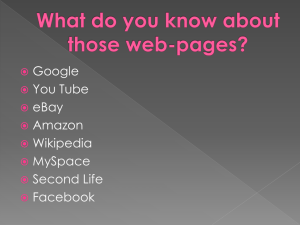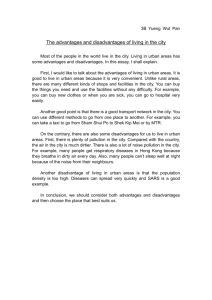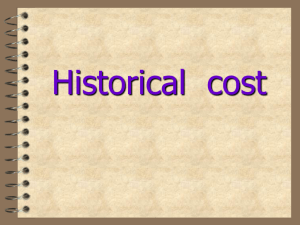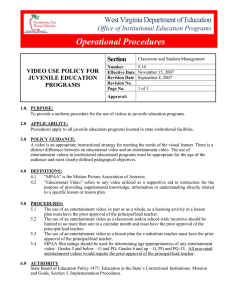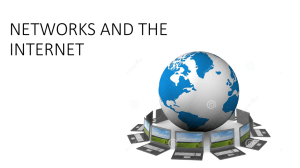Chapter 1- INTRODUCTION TO COMPUTERS
advertisement
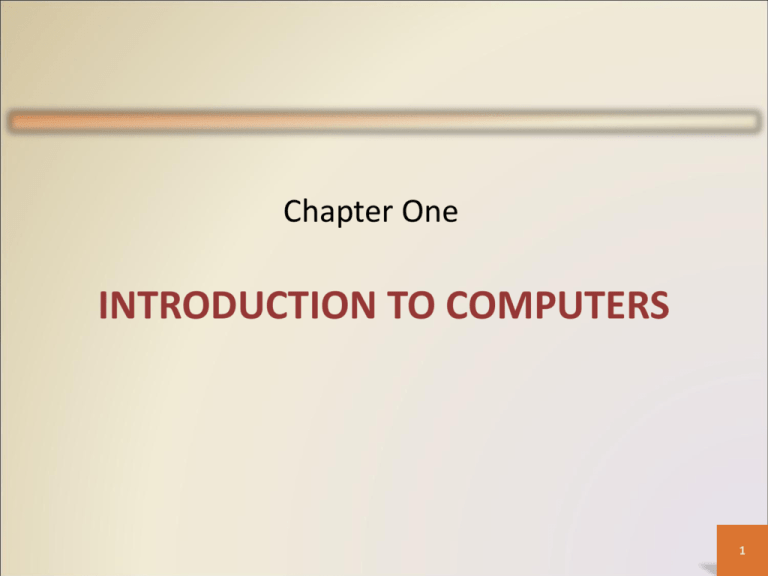
Chapter One INTRODUCTION TO COMPUTERS 1 A World of Computers • Computers are everywhere 2 What Is a Computer? • A computer is an electronic device, operating under the control of instructions stored in its own memory Collects data (input) Processing Produces information (output) Information Processing Cycle 3 What Is a Computer? 4 The Components of a Computer 5 Advantages and Disadvantages of Using Computers Advantages of Using Computers Disadvantages of Using Computers Speed Health Risks Reliability Violation of Privacy Consistency Public Safety Storage Impact on Labor Force Communications Impact on Environment 6 Advantages and Disadvantages of Using Computers • Green computing involves reducing the electricity consumed and environmental waste generated when using a computer • Strategies include: – – – – Recycling Regulating manufacturing processes Extending the life of computers Immediately donating or properly disposing of replaced computers 7 Networks and the Internet • A network is a collection of computers and devices connected together, often wirelessly, via communications devices and transmission media 8 Networks and the Internet • The Internet is a worldwide collection of networks that connects millions of businesses, government agencies, educational institutions, and individuals 9 Networks and the Internet • People use the Internet for a variety of reasons: Communicate Research and Access Information Entertainment Download Music Shop Bank and Invest Share Videos Online Trading Web Application 10 Networks and the Internet • A social networking Web site encourages members to share their interests, ideas, stories, photos, music, and videos with other registered users 11 Computer Software • Software, also called a program, tells the computer what tasks to perform and how to perform them System Software • Operating system • Utility program Application Software 12 Computer Software • Installing is the process of setting up software to work with the computer, printer, and other hardware 13 Computer Software • A programmer develops software or writes the instructions that direct the computer to process data into information 14 Examples of Computer Usage Home User • Personal financial management • Web access • Communications • Entertainment Small Office/Home Office User • Look up information • Send and receive e-mail messages • Make telephone calls Mobile User • Connect to other computers on a network or the Internet • Transfer information • Play video games • Listen to music • Watch movies 15 Examples of Computer Usage Power User Enterprise User • Work with multimedia • Use industry-specific software • Communicate among employees • Process high volumes of transactions • Blog 16 Computer Applications in Society Education Finance Government Health Care 17 Computer Applications in Society Science Publishing Travel Manufacturing 18
